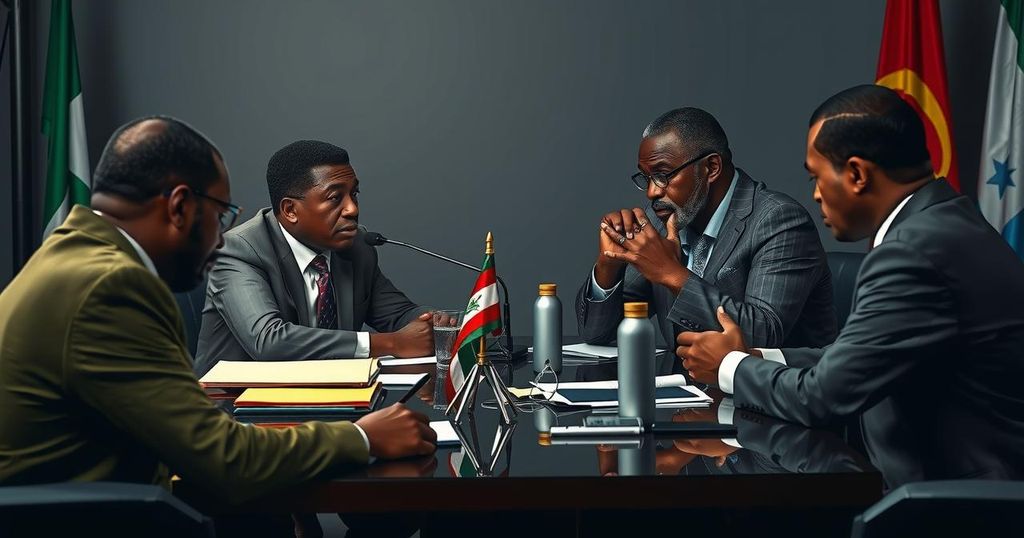Concerns Over DRC’s Political Will Threaten Luanda Peace Process

Rwanda’s Minister Amb. Olivier Nduhungirehe voiced concerns over the DRC’s lack of political will and good faith in implementing peace agreements as part of the Luanda Process. Despite recent discussions, escalating military actions and incendiary rhetoric from DRC officials threaten the stability efforts aimed at resolving conflicts in Eastern DRC and the Great Lakes Region. Continued hate speech may reflect a broader unwillingness from the DRC to engage meaningfully in peace negotiations.
The Democratic Republic of Congo (DRC) is in a precarious position regarding its commitment to the Luanda Process aimed at establishing peace in the Eastern DRC and the broader Great Lakes Region. Rwanda’s Minister of Foreign Affairs, Amb. Olivier Nduhungirehe, has expressed deep concerns about the DRC’s lack of adequate political will and good faith in fulfilling their obligations under the agreement. Despite a recent virtual meeting held to address outstanding issues, Minister Nduhungirehe highlighted troubling patterns of militarization and hostile rhetoric from DRC officials.
Amb. Nduhungirehe noted that ongoing military actions from the DRC, including troop deployments and attacks against M23 positions, signal a disregard for the ceasefire agreed upon in the past meetings. He underscored the implications of incendiary speeches by DRC leaders, particularly from Justice Minister Constant Mutamba, which seemed to incite hatred towards individuals perceived to be collaborating with Rwanda. Such rhetoric raises alarm about the DRC’s commitment to peace.
Although the discussions included various topics, critical security concerns remain unresolved. Rwanda aims to find a political solution to the longstanding issues affecting the two nations, especially concerning the neutralization of the FDLR and the status of M23. Minister Nduhungirehe expressed the hope that subsequent meetings would lead to meaningful dialogue aimed at addressing these pivotal matters.
In light of the ongoing unfortunate developments, Government Spokesperson Yolande Makolo reiterated that Rwanda would maintain its security measures until there is a substantial shift in the DRC’s approach to fostering peace and stability in the region.
The ongoing tensions between Rwanda and the DRC have historical roots deeply intertwined with ethnic conflict and political grievances. The Luanda Process, initiated to foster dialogue and promote peace, is crucial in navigating these complex relationships. Recent agreements have aimed to establish a framework for alleviating hostilities in Eastern DRC, a region that has suffered from violence and instability for decades. Rwanda’s increasing concerns regarding the DRC’s military actions and inflammatory rhetoric underscore the fragile nature of these peace efforts. The commitment of both nations to the agreements is essential to prevent further destabilization and ensure lasting peace in the region.
In conclusion, the effectiveness of the Luanda Process hinges on the political will and sincerity of both Rwanda and the DRC. The recent exchanges between the nations reveal a troubling discrepancy in their commitment to peace initiatives. Minister Nduhungirehe’s calls for accountability and adherence to the agreements underscore the importance of constructive dialogue in resolving longstanding disputes. The international community’s support will be vital in supporting the peace process and facilitating lasting stability in Eastern DRC.
Original Source: www.ktpress.rw







